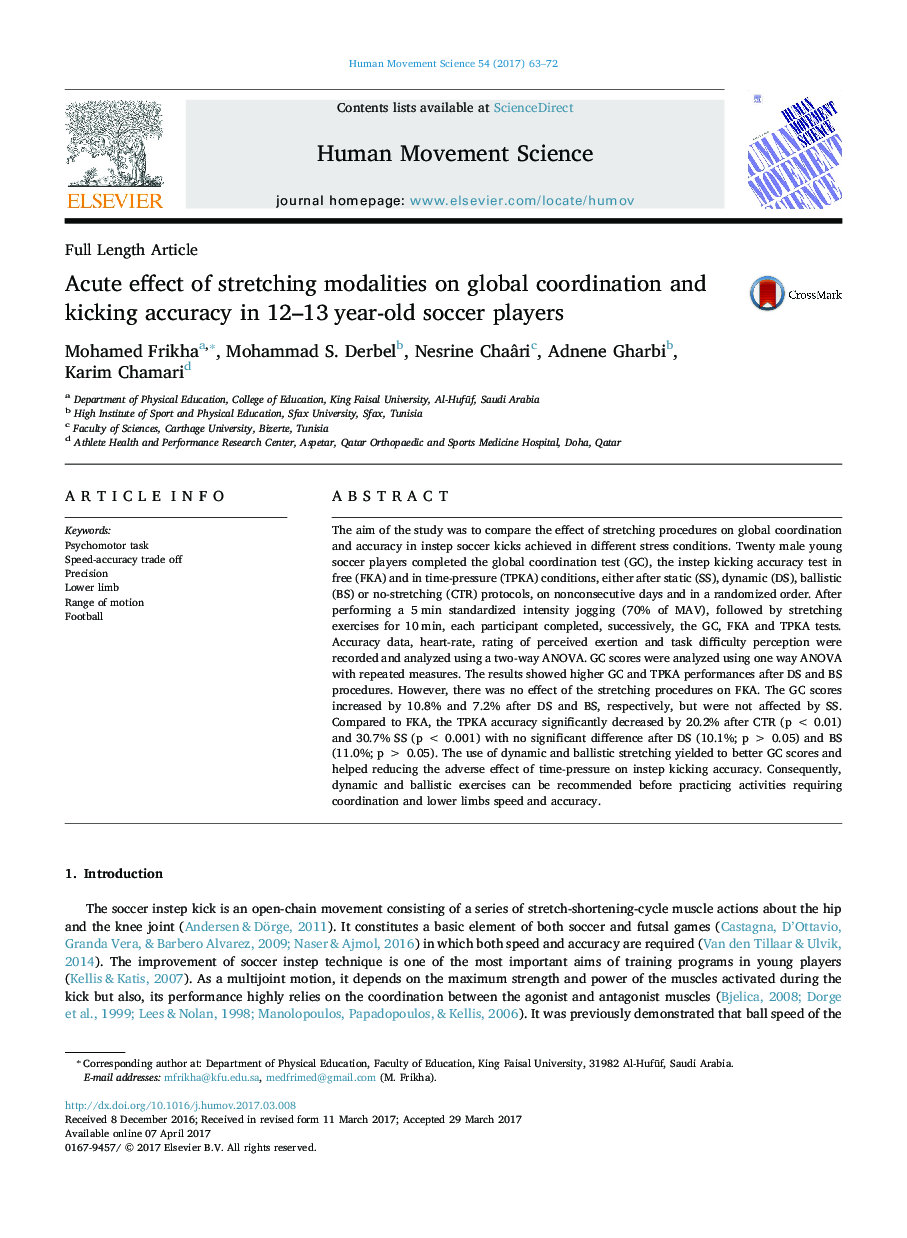| Article ID | Journal | Published Year | Pages | File Type |
|---|---|---|---|---|
| 5041967 | Human Movement Science | 2017 | 10 Pages |
The aim of the study was to compare the effect of stretching procedures on global coordination and accuracy in instep soccer kicks achieved in different stress conditions. Twenty male young soccer players completed the global coordination test (GC), the instep kicking accuracy test in free (FKA) and in time-pressure (TPKA) conditions, either after static (SS), dynamic (DS), ballistic (BS) or no-stretching (CTR) protocols, on nonconsecutive days and in a randomized order. After performing a 5 min standardized intensity jogging (70% of MAV), followed by stretching exercises for 10 min, each participant completed, successively, the GC, FKA and TPKA tests. Accuracy data, heart-rate, rating of perceived exertion and task difficulty perception were recorded and analyzed using a two-way ANOVA. GC scores were analyzed using one way ANOVA with repeated measures. The results showed higher GC and TPKA performances after DS and BS procedures. However, there was no effect of the stretching procedures on FKA. The GC scores increased by 10.8% and 7.2% after DS and BS, respectively, but were not affected by SS. Compared to FKA, the TPKA accuracy significantly decreased by 20.2% after CTR (p < 0.01) and 30.7% SS (p < 0.001) with no significant difference after DS (10.1%; p > 0.05) and BS (11.0%; p > 0.05). The use of dynamic and ballistic stretching yielded to better GC scores and helped reducing the adverse effect of time-pressure on instep kicking accuracy. Consequently, dynamic and ballistic exercises can be recommended before practicing activities requiring coordination and lower limbs speed and accuracy.
